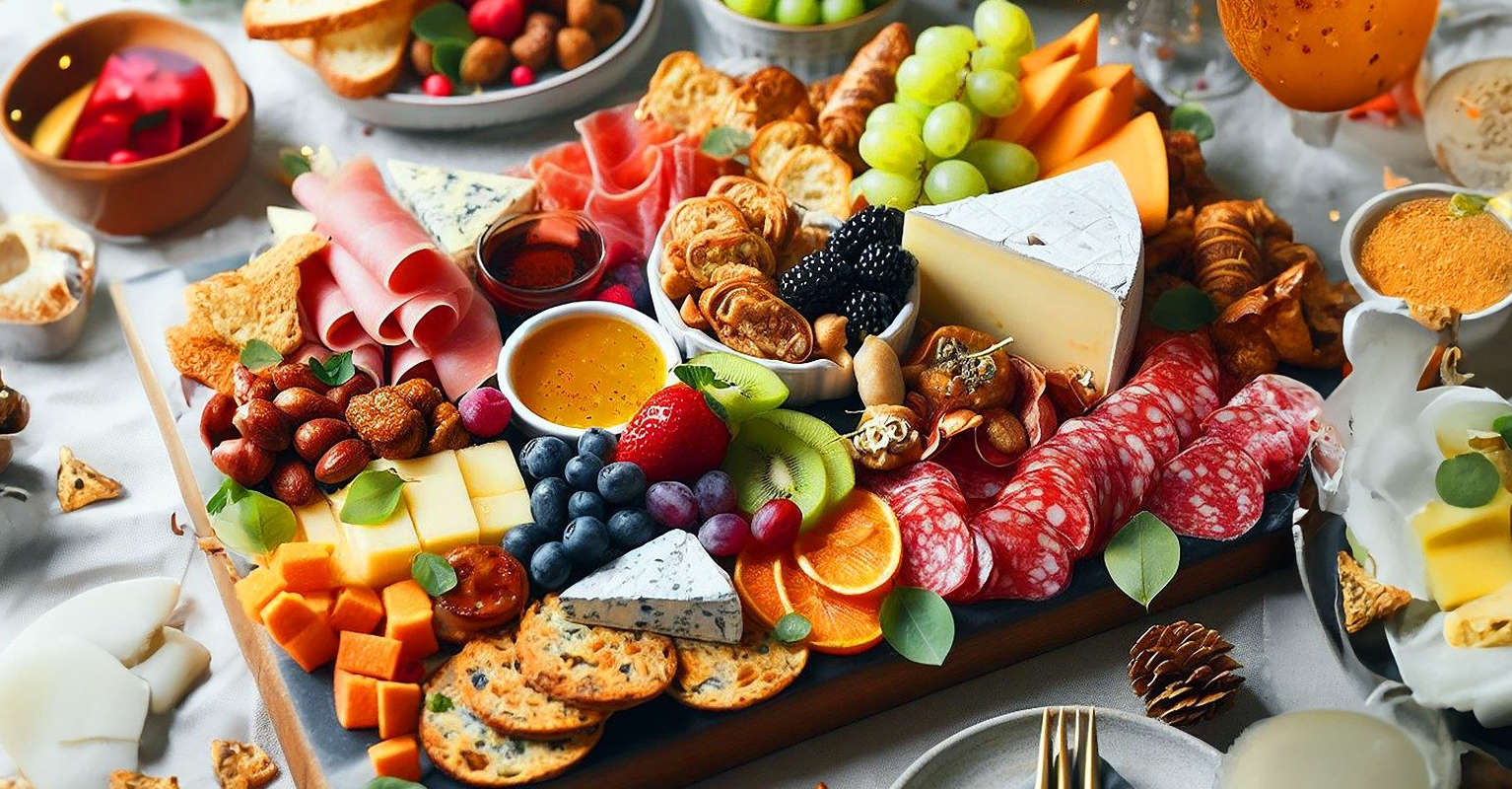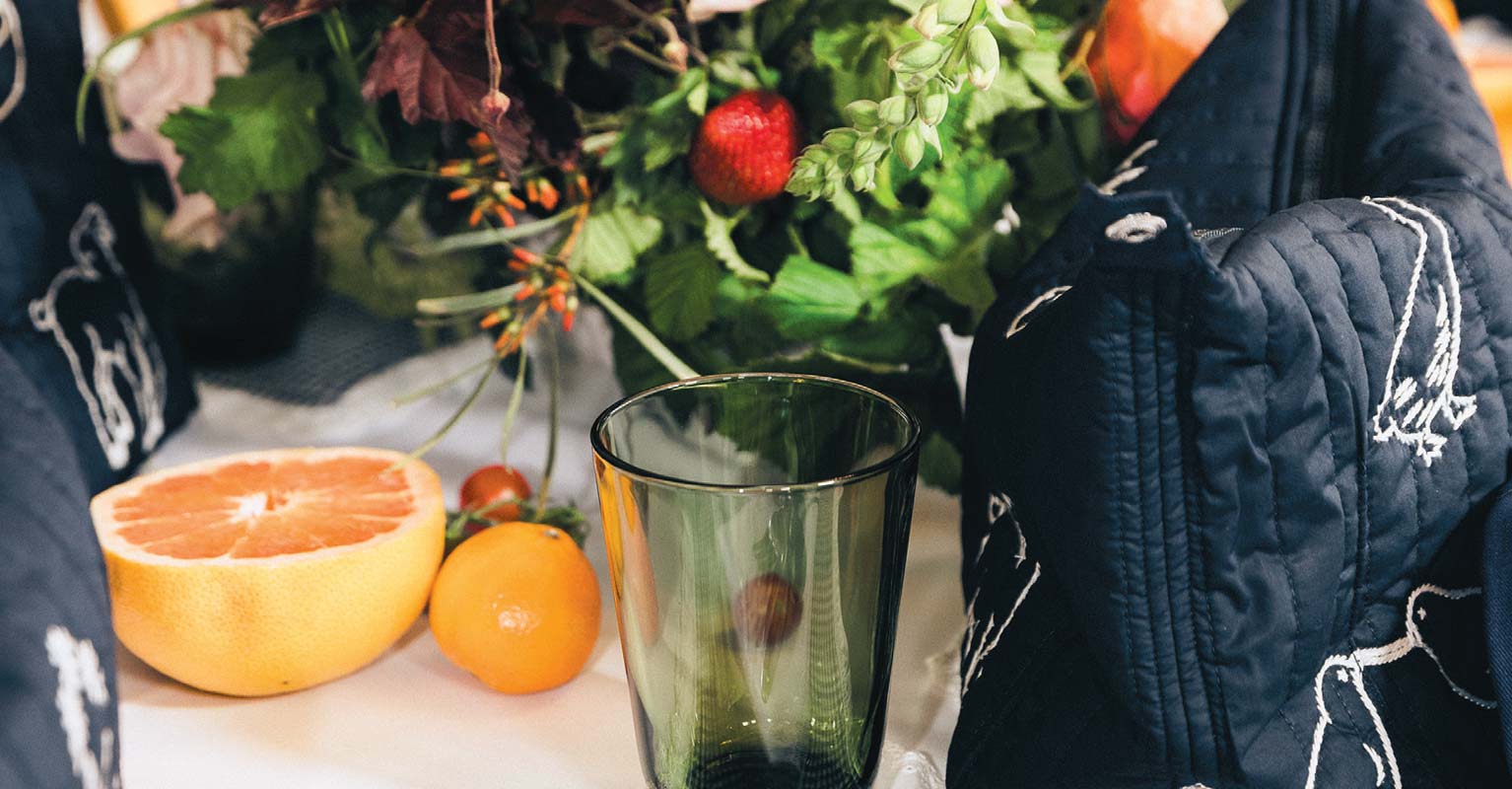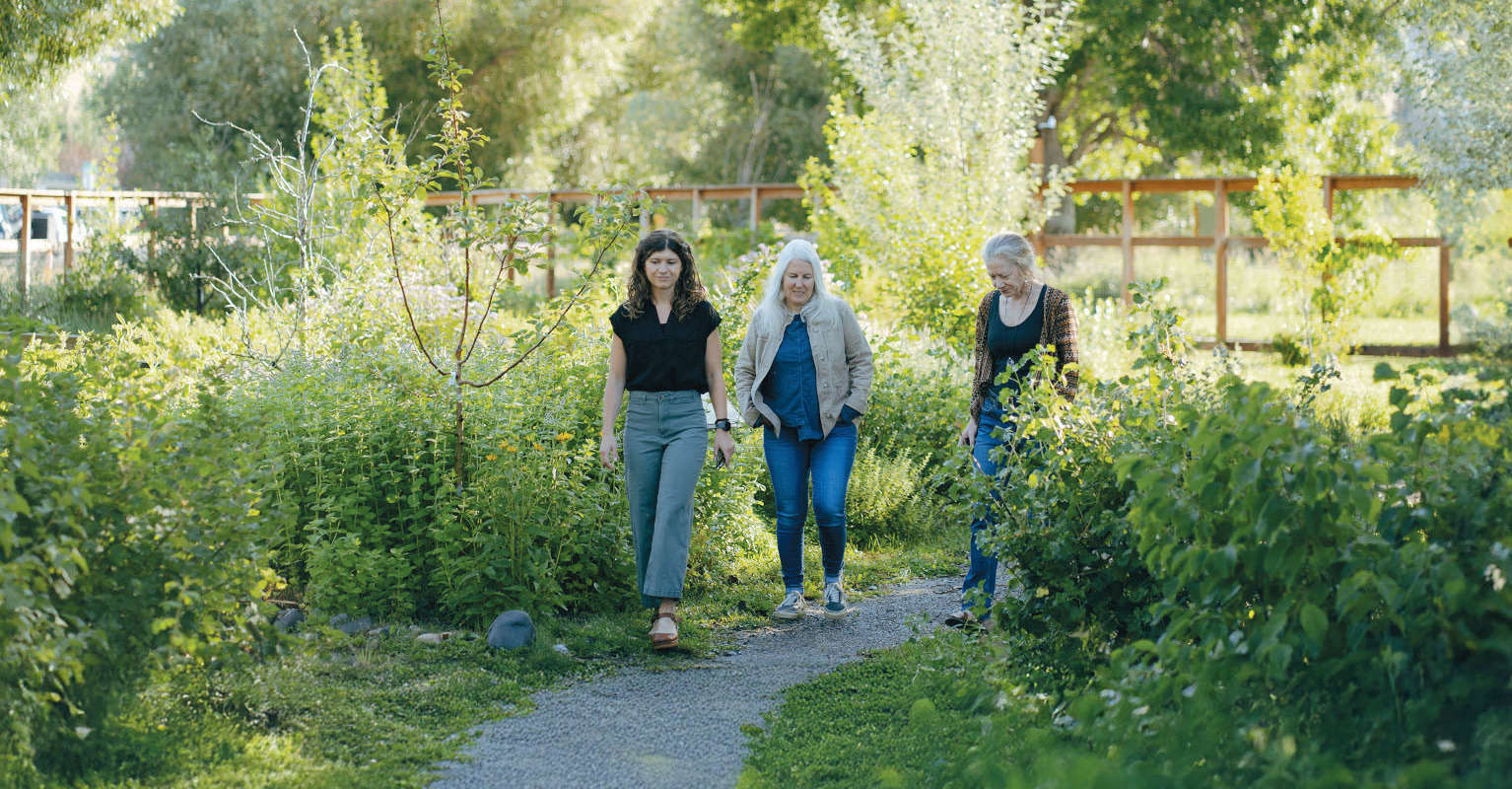Lives in Nature’s Rhythm
Having been in the flower business for 30 years, Remy Brault is candid about the industry’s biggest problems: waste, exploitation, pesticides, and the staggering environmental cost of shipping.
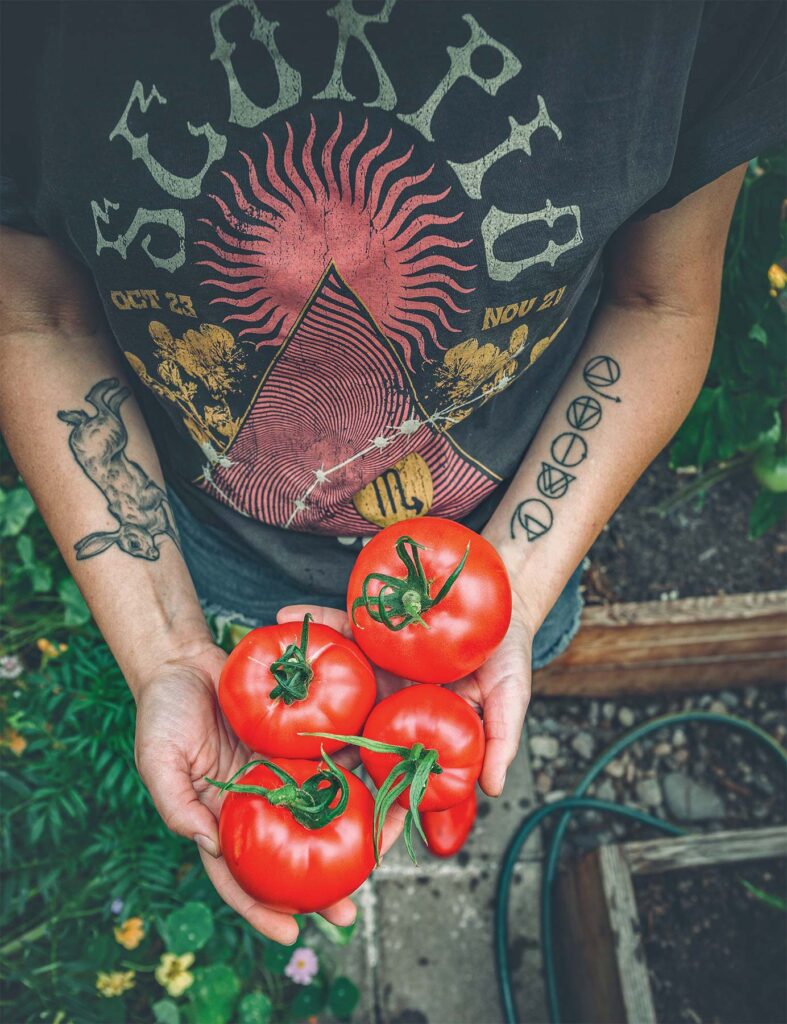
On an unassuming street in Bozeman, tucked into a neighborhood built in the 1970s, the backyard belonging to Remy Brault—owner of Labellum Flowers—buzzes with abundant life in the summer months. Blooming herbs, a thousand tulips, snapdragons, and whimsical bunches of bunny tails line her flower beds. Rainwater is caught for the garden, and her chickens live the life of royalty.
Chemical-free and full of intention, it’s Brault’s version of backyard homesteading: growing as much food and beauty as one little yard can hold. She has had neighbors complain about her yard being messy, and she’s also found neighbors inspired to ditch their own chemical sprays after seeing what’s possible.
Look a little closer and that so-called “messy” yard—the one not sanitized of dandelions or manicured to golf-course standards—starts to tell a different story. The rain waters the plants; the plants feed both the native bees and the hives Brault keeps; the chickens keep the insects in check; and the absence of pesticides allows the soil to thrive—it’s alive with microorganisms that, in turn, nourish the food she grows. What some see as chaos is actually a system working in harmony. And for those willing to slow down, there’s a deep sense of connection waiting to be found.
Having been in the flower business for 30 years, Brault is candid about the industry’s biggest problems: waste, exploitation, pesticides, and the staggering environmental cost of shipping. Supermarket flowers, she says, are often treated like disposable products—grown with harmful chemicals, shipped long distances, and left to wilt under fluorescent lights. That kind of mass-market model not only strains the environment but also erodes the value of more intentional, artistic floral work. For something so beautiful, it’s hard to ignore the heavy drain it places on the overall system. Her work is rooted in a deep awareness of consumption—how much we take, often without noticing, and the impact that accumulates over time. She’s conscious of how much even a small flower shop can consume.
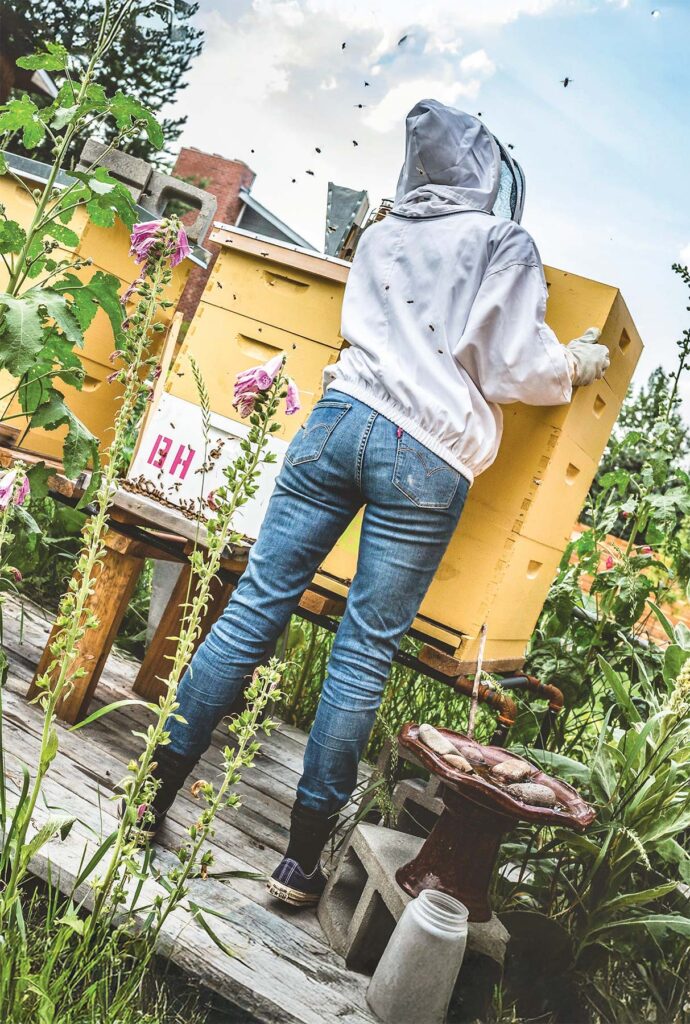
What some see as chaos is actually a system working in harmony. And for those willing to slow down, there’s a deep sense of connection waiting to be found.
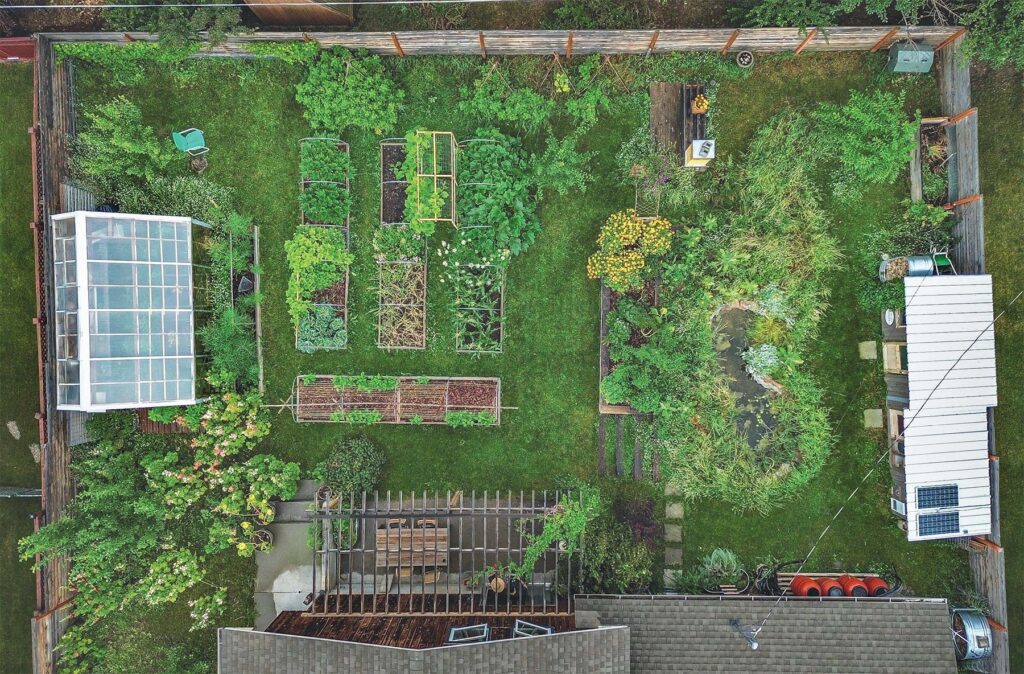
For years Brault lived in cities, dreaming that one day she and her family would have a little patch of soil to grow what they needed. When they finally found a space of their own, they committed to doing things differently. Though their backyard garden can’t feed them year-round, it does a remarkable job of nourishing their family, sharing abundance with neighbors, and even supplying a small selection of blooms for the flower shop. For Brault, it’s a quiet kind of resistance— one that begins in the soil just outside her back door.
Brault’s approach to flowers is rooted in the same philosophy that guides her everyday life. Growing food and blooms at home, eating what she cultivates, and caring for a space that nourishes both her family and her creative work is more than a lifestyle—it’s a form of restoration. There’s real satisfaction, she says, in understanding what it takes to bring something from soil to table or stem to vase. That connection—to land, to effort, to season—is something the body and mind instinctively respond to. It’s not only about arranging flowers; it’s about living in rhythm with the world that gives to us—learning how to give back, even if it means starting small.
One of the ways Brault integrates her home garden with her flower shop is through education. While she can’t grow enough blooms at home to meet the shop’s demand, she can showcase small-scale growing as a way to work within the seasons, and she shares the process on Instagram. In the fall, for example, she documents how she plants 1,000 tulip bulbs, sharing the journey from planting to vase. Then, for a limited time in the spring, those tulips are available for purchase. She takes a similar approach with blooms like bunny tails and snapdragons. This not only involves customers in the growing process but also highlights the sustainable effort behind each flower.
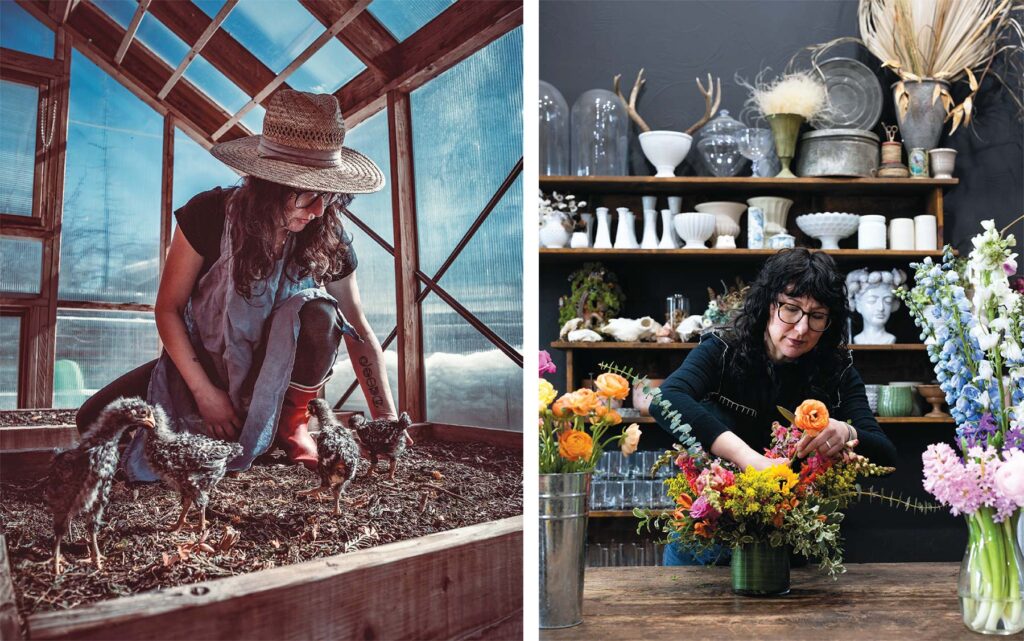
Brault seeks to reduce her footprint by sourcing flowers locally: For about six months of the year, she procures roughly 80 percent of her flowers from within Montana. She’s built partnerships with backyard gardeners and local farms, many of whom grow without spraying chemicals. This commitment to non-sprayed flowers is something Labellum’s customers have come to expect and appreciate.
There’s something familiar and comforting within the Labellum Flowers shop. It feels like stepping into a favorite neighborhood coffee shop—the kind of place where the owner knows your name, and maybe even your favorite drink—or bouquet. Over the past 14 years, Brault has cultivated more than just arrangements; she’s built relationships. She’s been part of some of her customers’ biggest life moments, from weddings to baby showers, and now, years later, the milestone celebrations of those babies growing up.
This closeness is also what drives her commitment to being a voice for her customers—literally. “People let me speak for them when they can’t,” she says. Whether it’s ‘I love you,’ ‘I’m sorry,’ or ‘Congratulations,’ flowers say what words sometimes can’t.” And because she holds that role with such care, she’s made it her mission to be the healthiest, most intentional voice she can.


